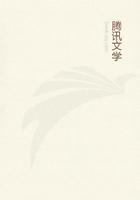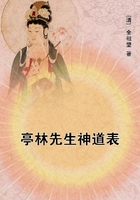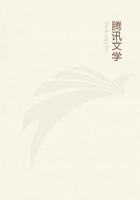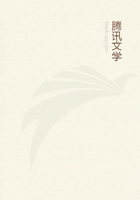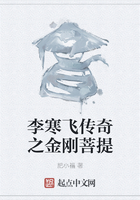The resultant outcome of them is in any case what Kant calls a "sthenic" affection, an excitement of the cheerful, expansive, "dynamogenic" order which, like any tonic, freshens our vital powers. In almost every lecture, but especially in the lectures on Conversion and on Saintliness, we have seen how this emotion overcomes temperamental melancholy and imparts endurance to the Subject, or a zest, or a meaning, or an enchantment and glory to the common objects of life.[340] The name of "faith-state," by which Professor Leuba designates it, is a good one.[341] It is a biological as well as a psychological condition, and Tolstoy is absolutely accurate in classing faith among the forces BY WHICH MEN LIVE.[342] The total absence of it, anhedonia,[343] means collapse.
[340] Compare, for instance, pages 200, 215, 219, 222, 244-250, 270-273.
[341] American Journal of Psychology, vii. 345.
[342] Above, p. 181.
[343] Above, p. 143.
The faith-state may hold a very minimum of intellectual content.
We saw examples of this in those sudden raptures of the divine presence, or in such mystical seizures as Dr. Bucke described.[344] It may be a mere vague enthusiasm, half spiritual, half vital, a courage, and a feeling that great and wondrous things are in the air.[345]
[344] Above, p. 391.
[345] Example: Henri Perreyve writes to Gratry: "I do not know how to deal with the happiness which you aroused in me this morning. It overwhelms me; I want to DO something, yet I can do nothing and am fit for nothing. . . . I would fain do GREAT
THINGS." Again, after an inspiring interview, he writes: "I went homewards, intoxicated with joy, hope, and strength. I wanted to feed upon my happiness in solitude far from all men.
It was late; but, unheeding that, I took a mountain path and went on like a madman, looking at the heavens, regardless of earth.
Suddenly an instinct made me draw hastily back --I was on the very edge of a precipice, one step more and I must have fallen.
I took fright and gave up my nocturnal promenade." A. Gratry:
Henri Perreyve, London, 1872, pp. 92, 89.
This primacy, in the faith-state, of vague expansive impulse over direction is well expressed in Walt Whitman's lines (Leaves of Grass, 1872, p. 190):--
"O to confront night, storms, hunger,ridicule, accidents, rebuffs, as the trees and animals do. . . .
Dear Camerado! I confess I have urged you onward with me, and still urge you, without the least idea what is our destination Or whether we shall be victorious, or utterly quell'd and defeated."
This readiness for great things, and this sense that the world by its importance, wonderfulness, etc., is apt for their production, would seem to be the undifferentiated germ of all the higher faiths. Trust in our own dreams of ambition, or in our country's expansive destinies, and faith in the providence of God, all have their source in that onrush of our sanguine impulses, and in that sense of the exceedingness of the possible over the real.
When, however, a positive intellectual content is associated with a faith-state, it gets invincibly stamped in upon belief,[346] and this explains the passionate loyalty of religious persons everywhere to the minutest details of their so widely differing creeds. Taking creeds and faith-state together, as forming "religions," and treating these as purely subjective phenomena, without regard to the question of their "truth," we are obliged, on account of their extraordinary influence upon action and endurance, to class them amongst the most important biological functions of mankind. Their stimulant and anaesthetic effect is so great that Professor Leuba, in a recent article,[347] goes so far as to say that so long as men can USE their God, they care very little who he is, or even whether he is at all. "The truth of the matter can be put," says Leuba, "in this way: GOD IS NOT KNOWN, HE IS NOT UNDERSTOOD; HE IS USED--sometimes as meat-purveyor, sometimes as moral support, sometimes as friend, sometimes as an object of love. If he proves himself useful, the religious consciousness asks for no more than that. Does God really exist? How does he exist? What is he? are so many irrelevant questions. Not God, but life, more life, a larger, richer, more satisfying life, is, in the last analysis, the end of religion. The love of life, at any and every level of development, is the religious impulse."[348]
[346] Compare Leuba: Loc. cit., pp. 346-349.
[347] The Contents of Religious Consciousness, in The Monist, xi.
536, July 1901.
[348] Loc. cit., pp. 571, 572, abridged. See, also, this writer's extraordinarily true criticism of the notion that religion primarily seeks to solve the intellectual mystery of the world. Compare what W. Bender says (in his Wesen der Religion, Bonn, 1888, pp. 85, 38): "Not the question about God, and not the inquiry into the origin and purpose of the world is religion, but the question about Man. All religious views of life are anthropocentric." "Religion is that activity of the human impulse towards self-preservation by means of which Man seeks to carry his essential vital purposes through against the adverse pressure of the world by raising himself freely towards the world's ordering and governing powers when the limits of his own strength are reached." The whole book is little more than a development of these words.
At this purely subjective rating, therefore, Religion must be considered vindicated in a certain way from the attacks of her critics. It would seem that she cannot be a mere anachronism and survival, but must exert a permanent function, whether she be with or without intellectual content, and whether, if she have any, it be true or false.
We must next pass beyond the point of view of merely subjective utility, and make inquiry into the intellectual content itself.
First, is there, under all the discrepancies of the creeds, a common nucleus to which they bear their testimony unanimously?
And second, ought we to consider the testimony true?

